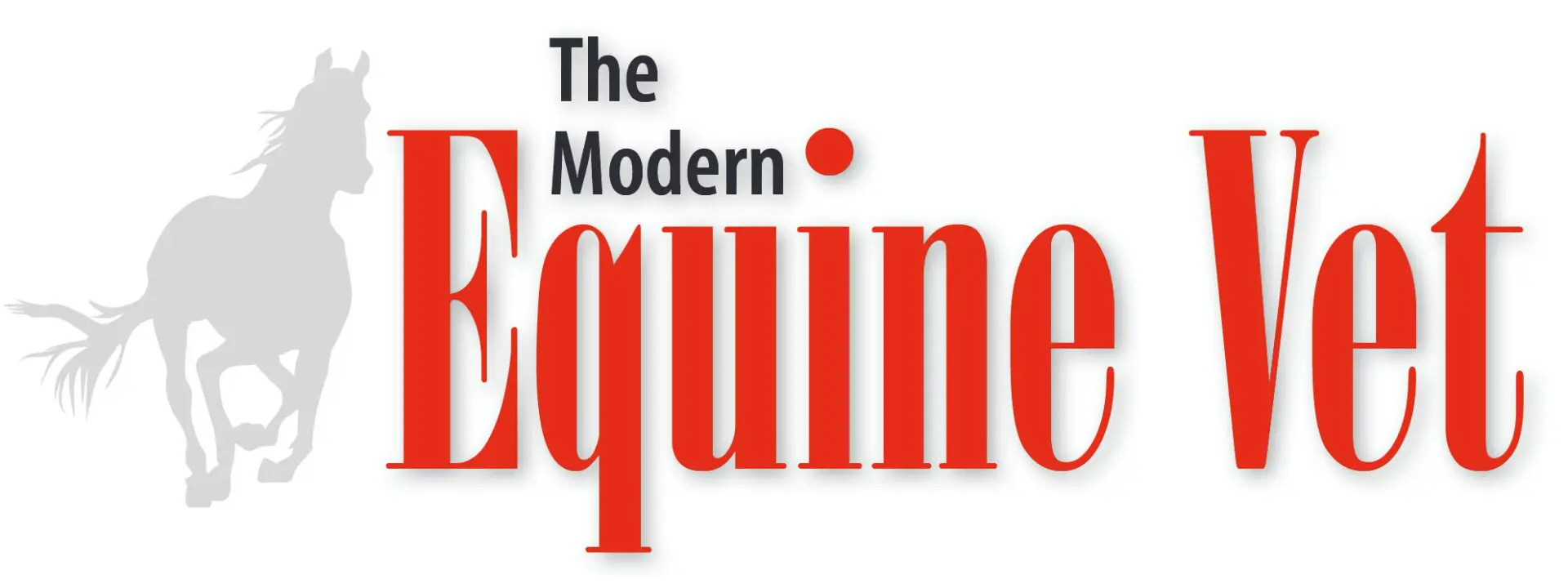BUSINESS OF MEDICINE
How do I decrease accounts receivable in my ambulatory practice?
By Linda Hagerman, DVM
Equine practice is a highly rewarding career, but it’s not an easy one, especially for ambulatory practitioners. Balancing the demands of daily practice with the needs of the business while on the road is challenging, to say the least. But to provide prosperous careers for ourselves and our employees, and to keep our practices viable, we must make our financial health a priority. Collecting payment at the time of service and maintaining low accounts receivable (A/R) is a key way to ensure a thriving practice. Here are some strategies to help you do this.
DEVELOP A CULTURE OF COLLECTION
Collecting payment at the time of service is a whole-team effort. The practice owner and/or manager leads the effort by creating a financial policy that states payment is required when services are provided. They then share the policy with associates, staff and clients and create a system of regular follow-up to ensure it’s being upheld.
If your clients are used to receiving a bill, manage their expectations through proactive communication. Discuss payment options when appointments are scheduled and again when you present your treatment plan and associated costs. This can help head off uncomfortable financial conversations when it’s time to pay. With time and consistency, you’ll see your practice culture change.
BE SELECTIVE
If a new client calls with an emergency, take time to talk to them on the phone to assess their situation. Find out who their regular veterinarian is, give them a cost estimate and establish the method of payment before heading out to help. Be especially careful if there are other veterinarians closer to them—the client may be in arrears with surrounding practices.
MONITOR YOUR METRICS
To meet your financial goals, be mindful of key performance metrics. Keep your A/R total under 9% of revenue and your days-to-collection number as low as possible—here’s the formula:
•A/R beginning of period + A/R end of period ÷ 2 = Average A/R
•Total sales ÷ Average A/R = % of A/R to sales
•% of A/R to sales × 365 = Days to collection
TAKE-HOME MESSAGE
The success of a veterinary practice is determined by a mix of business and veterinary skills, yet few of us get the business education we need during veterinary school. We can start by collecting payment at time of service and decreasing A/R to create more profitable practices that let us continue providing care to the horses and clients that need it.
MY TIPS FOR MANAGING ACCOUNTS RECEIVABLE
- Make sure payment is worked out before providing services. Establish the payment method when the appointment is booked.
- Make your billing period from the previous 16th to the current 15th of the month. This aligns with client end-of-month bill payment habits.
- Offer flexible financing with the CareCredit health, wellness and animal care credit card, which provides a mobile-friendly experience accessible anywhere.
- Take card readers in the field to collect credit and debit payments, and accept online options such as PayPal, Venmo and CareCredit.
- Do not accept checks from first-time clients.
- Be prepared with a collections strategy if clients don't pay.
To discover more about how veterinary financing can help you, your patients, your clients and your practice, visit CareCredit’s Equine Insights page. Learn how you can provide the contactless digital financing clients want at carecredit.com/mycustomlink.
Dr. Linda Hagerman has owned Tacoma Equine Hospital in Tacoma, Washington, since 2000. She and her five associates focus on providing outstanding preventive care along with advanced specialty services for those who need it. She was a speaker at the 2022 AAEP Convention.
Disclaimer from sponsor: This column is brought to you with the support of CareCredit. Synchrony and its affiliates, including CareCredit, share this information solely for your convenience. All statements are the sole opinions of the author, and Synchrony makes no representations or warranties regarding the content. You are urged to consult with your individual advisors with respect to any information presented.
Good Recordkeeping Is Your Best Defense
By Tom Rosenthal
Good medical recordkeeping is a veterinarian’s best defense against malpractice, license and regulatory complaints, Cynthia G. MacKenzie, DVM, explained.
“Whether you're a new practitioner or an older practitioner,” Dr. MacKenzie said, “my take-home message is very simple: Document, document, document. I can't say that enough.”
Dr. MacKenzie spoke at the 2022 AAEP Convention. At the time, she was with the AVMA Trust, which has tracked malpractice claims since 1960. In just 2 years, the AVMA Trust program has seen a 13% increase in the number of professional liability claims submissions for all species. “The trust is on track to review more professional liability malpractice claims this year than ever before,” she said.
“We think it's mainly because of licensing boards going to an online form of submission, so it makes it really easy for an angry or upset owner to file a complaint now against a veterinarian's license,” Dr. MacKenzie said.
Equine professional liability malpractice claims are increasing at a rate of about 15% a year, she said.
While equine claims are a small percentage of the total number of claims, they represent the highest payouts, Dr. MacKenzie said, adding that poor recordkeeping is the leading cause for state licensing boards to issue fines.
“In this current environment, veterinarians are under attack,” she said.
“The purpose of medical records is to document the patient's condition and medical care," she added. “It is also there to document your standard of care. It’s part of the continuation of care. Any veterinarian should be able to pick up your medical records, understand the horse’s condition, and pick up where you left off treating that horse.”
The records belong to the practice, she noted.
Items to include in the medical records are written consent forms, anesthesia logs, surgery reports, physical exam findings, diagnostic tests and diagnosis. Record not only what was recommended, but whether the owner accepted or declined the recommendations.
“What our attorneys tell us is those declined estimates are some very powerful pieces of evidence,” Dr. MacKenzie stressed.
Keep any estimates of treatment provided to the owner, as well as proof if the owner declined the proposed procedures with the medical record.
Additional records to keep in a client’s file: Lab results, estimate sheets, and all communications including emails, voice messages, and records of conversations.
“Right or wrong, the quality of care will often be judged on the quality of your medical records,” she said.
Dr. MacKenzie also stressed that records should be accurate, legible and timely. She recommended that the records should be updated on the same day or within 24 to 48 hours. “I know that most of you are running faster than the pace of these racehorses every single day and that it can be difficult to document everything in a timely manner. I totally understand that you're running nonstop all the time.”
However, Dr. MacKenzie said that the longer a veterinarian waits to document treatment and services, the more likely items may be forgotten. After a hectic week, “you're spending your weekend trying to remember, ‘What did I do to that horse, you know, back on Monday?’ And you're likely to forget things,” she said.
Dr. MacKenzie cited the case of a veterinarian who performed a pre-purchase exam on an 8-year-old Warmblood mare in the Northeast. “Historically, the horse had shown some lameness and some intermittent fevers, but on the day of the exam, none of that was seen,” she said. “The buyer was offered bloodwork, but declined. That decision was documented in the pre-purchase exam report.”
Six months later, after the horse was purchased and shipped to the southern part of the U.S., the horse came down lame. The new owner had another veterinarian diagnose the horse with a titer test that showed Lyme disease. “The owner was upset; she retained an attorney and made a demand for the purchase price of the horse,” Dr. MacKenzie said.
Since the veterinarian could document that there was no lameness or fever on the day of the pre-purchase exam and that the buyer declined bloodwork, “the claim was denied and the client was not paid anything,” Dr. MacKenzie said.
Establishing a culture of recordkeeping and documentation also ensures compliance with legal and regulatory standards.
Clients are entitled to a copy of their horses’ records within a reasonable time, which usually is designated within the state’s practice act, Dr. MacKenzie said. “You want to consult your practice act for specifics on what is to be included in the medical record and realize that that's a minimum requirement,” she noted.
Each state’s practice act is different, Dr. MacKenzie said. “Each practice act stipulates certain requirements for recordkeeping from how long you maintain medical records to the minimum requirements that should be maintained. If you haven't read your practice act recently, I would highly encourage you to do so.” She stressed that practice act requirements are constantly changing.
In addition to the state licensing boards, other regulatory agencies mandate good recordkeeping, including the DEA, USDA, the Horseracing Integrity and Safety Authority, and the Performance Horse Organizations.
“This is really the reason why we’re giving this talk,” Dr. MacKenzie said. “Your records are your defense. And it is crucial in the defense of a malpractice lawsuit or a license or a board complaint. This is what it boils down to: Appropriate documentation is not only needed to support your standard of care, but also to protect against false allegations of negligence.”
Not only are there ethical considerations for maintaining good medical records, it is also a good business practice, she said.
Dr. MacKenzie said, “The rule of thumb is if it was not recorded in the record, then it was not performed. If you document well, if you ever need them, your records will defend you.”
Using Support Staff to Maximize Veterinarian Effectiveness and Profits
By Tom Rosenthal
The more equine veterinary practices expand the roles of their support staff, the more effective and profitable the practice can become, according to a presentation at the 69th AAEP Convention, held in San Diego, CA.
Maximizing the work of licensed veterinary technicians (LVTs), veterinary assistants (VAs) and even receptionists can help a practice retain its talent by letting vets focus primarily on patient care while providing professional development to support staff members so they have a more meaningful career, said Mike Pownall, DVM, MBA, partner of McKee-Pownall Equine Services, in Ontario, Canada.
Additionally, expanding supporting roles can improve work-life balance and quality of life for the veterinarians.
Dr. Pownall cited a 2018 AAEP/AVMA Economic Survey that found single veterinary practices without support staff reported annual gross sales of $205,000, while those with support staff grossed $330,000—$125,000 more.
This made them 1.6 times more productive than practices without support staff, according to Dr. Pownall.
With a shortage of equine veterinarians entering and staying in clinical practice, veterinary practices everywhere are suffering, he added. As a result, veterinarians are caring for more patients, increasing the chances for burnout.
The only way to stop this is to become more efficient, he explained.
SUPPORT STAFF HELPED PRACTICE GROW
Dr. Pownall and his wife Melissa McKee, DVM, started their practice in 2002 in the Toronto area. Their practice has grown to 16 veterinarians in 3 locations, he said. “The reason why the practice grew was the use of support staff and really having an emphasis on letting the vets do what vets do and training and nurturing support staff.”
By empowering support staff to have more responsibilities, veterinarians can see more patients during a workday and have fewer post-patient responsibilities like medical records, client communications and preparing submissions to the laboratory for testing, he explained.
Additionally, veterinarians are using LVTs and VAs for such responsibilities as removing sutures, changing bandages and laser therapy, either when they accompany the veterinarian on a patient visit or visiting a patient solo.
He noted there is value in having an LVT or VA accompany the veterinarian on a patient visit because they help provide additional safety in dealing with a physically challenging client or discussing the case after the visit.
STAFF CAN HANDLE CLERICAL/ADMINISTRATIVE CHORES
Bridget Heilsberg, DVM, the owner of Crown 3 Equine, in Whitesboro, Texas, who also spoke at the conference, noted that front-office staff can take over the vital role of ensuring that activities are properly billed
She suggested practice owners make a list of the things that they don’t like about practice ownership or management. These chores can range from clerical and administrative duties, such as scheduling appointments and ensuring bills are paid, to carrying out specific procedures in the field.
“Those are the things that you put off doing and they’re costing you money,” she said. “Now find someone or multiple ‘someones’ to do those things and [who] enjoys doing the things that you don’t like doing. Make sure you can afford the people and then hire the people to do those things.”
She said an important step before giving veterinary staff more responsibility is to determine what is permitted under your state’s or province’s practice act. Dr. Heilsberg cited the website of the American Association of Veterinary State Boards (aavsb.org) as an invaluable resource in determining what functions support staff such as LVTs and VAs can perform under the laws in each jurisdiction.
She suggested that all veterinarians should look up this information in their jurisdictions to understand what staff can do. “Find out what is legal. Find out what your practice act says,” Dr. Heilsberg advised, and then use the information as guidelines to maximize the practice. “Staff utilization turns into higher profit margins,” she said.
Another vital step in team building is taking the time to determine what needs are not being met at the practice and filling those gaps.
FOR MORE INFORMATION
American Association of Equine Practitioners. Economic Report (April 1, 2019). https://aaep.org/sites/default/files/Documents/2019%20FINAL_AMVA_AAEP_Equine_Report.pdf


